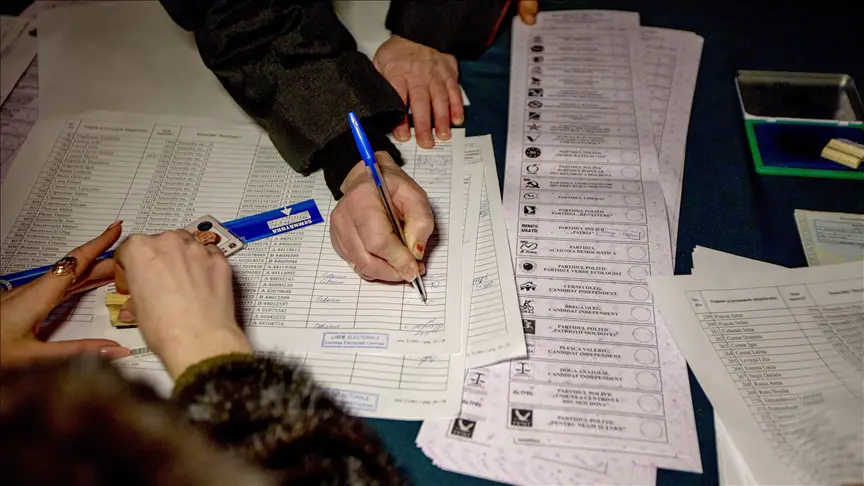On Sunday, citizens of Moldova will vote in a crucial presidential election and a referendum that could pave the way for the country's accession to the European Union. The polling stations will open at 7 a.m. local time and close at 7 p.m. (0400-1600 GMT), with over 1,100 local and 280 foreign observers monitoring the proceedings.
The election is taking place against a backdrop of geopolitical tensions between the West and Russia, as Moldova, a former Soviet state, finds itself at the center of an ongoing power struggle. The outcome of the referendum and the election could significantly impact Moldova's future, determining whether the country leans toward Europe or renews its ties with Russia.
Referendum on EU Membership
Voters will be asked to decide on Moldova's future with the question, 'Are you for the accession of the Republic of Moldova to the European Union?' If the majority votes 'YES,' the outcome will amend the Constitution, making EU membership a constitutional goal. For the referendum to be valid, voter turnout must exceed 33%.
Twelve political parties are campaigning in favor of Moldova's EU accession, while only two are advocating against it. The result of the referendum could set a historic precedent, potentially locking in Moldova's trajectory toward European integration.
Presidential Election Amidst Economic Challenges
At the same time, Moldovans will also elect a new president for a four-year term. The current pro-Western President, Maia Sandu, is running for a second term, hoping to win enough support to solidify her agenda of aligning Moldova with the European Union. Sandu's leadership has seen Moldova accelerate its efforts to distance itself from Moscow, especially amid the ongoing conflict between Russia and Ukraine.
A total of 11 candidates are running for the presidency, including figures like former Baltsi Mayor Renato Usatii, ex-Prime Ministers Vasile Tarlev and Ion Chicu, and several independent candidates like former Interior Minister Andrei Nastase and journalists Natalia Morari and Victoria Furtuna. Among the candidates are two Gagauz Turks, Irina Vlah and Alexandr Stoianoglo, who represent the interests of the Gagauz minority and are more aligned with Russian interests.
Geopolitical Tensions and the Russian Factor
The election and referendum have been marked by allegations of external interference. Chisinau has accused Moscow of trying to destabilize Moldova by providing education in Russia to Moldovan citizens and blocking its efforts to integrate with the EU. In response, Russia has claimed that Moldova has taken 'unfriendly' actions against it, including restrictions on the Russian language, urging Moldova to maintain neutrality as required by its Constitution.
The Russian-backed 'Victory' group has emerged as a vocal opponent of the current pro-EU government, intensifying the already tense political atmosphere.
Transnistria's Role in the Election
Voting is also being conducted in the breakaway region of Transnistria, where 30 ballot boxes have been set up. This Moscow-leaning region, which declared unilateral independence from Moldova, remains a point of contention, with around 2,000 Russian soldiers still stationed there. The political dynamics in Transnistria could play a critical role in the final vote tally.
Likelihood of a Runoff
According to a survey conducted by the Public Policy Institute in Moldova, President Sandu is expected to secure 29.5% of the vote, with her nearest rival, Renato Usatii, polling at 13.3%. Other significant contenders include Alexandr Stoianoglo with 11.6% and Vasile Tarlev at 6.1%. The results suggest that no candidate is likely to receive more than 50% of the vote, which means a second-round runoff is highly probable.
Economic Concerns Dominate Campaign
Economic issues have been a dominant theme in the campaign, with many candidates criticizing Sandu for Moldova's deepening economic crisis, rising inflation, and increased natural gas prices. The economic hardships are partly attributed to the impact of the Russia-Ukraine conflict, which has disrupted natural gas supplies and trade.
What's at Stake?
Since gaining independence from the Soviet Union, Moldova has oscillated between pro-Western and pro-Russian influences. Under Sandu's leadership, the country has made significant strides toward European integration, gaining 'candidate country' status and starting membership negotiations with the EU. However, the divide between pro-EU and pro-Russian factions remains a defining feature of Moldova's political landscape.
As voters head to the polls, the decisions made in this election and referendum will shape Moldova's future for years to come, determining whether it moves closer to Europe or seeks to renew its ties with Moscow. The Moldovan Central Election Commission has announced that no exit polls will be conducted, adding a layer of uncertainty to the election's outcome.

The post Moldova heads to the polls for presidential election and EU membership referendum appeared first on The Custom Reports.
